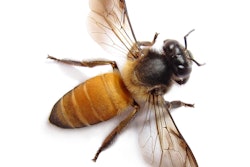In June, the Oregon Department of Agriculture (ODA) issued a temporary rule restricting the use of products containing the active ingredients dinotefuran and imidacloprid in the wake of four separate incidents. One of these incidents involved a foliar application of a Valent U.S.A. Corporation product, Safari Insecticide, to European linden trees during bloom—a violation of label instructions. The ODA report concludes that the unfortunate bumblebee deaths connected to the use of Safari were the direct result of a private commercial applicator “performing a pesticide application in a faulty, careless, or negligent manner.”
The ODA report states that “the linden trees were clearly in bloom at the time of the pesticide applications. The product label states that the pesticide is known to be hazardous to bees when applied onto flowering trees in bloom and should not be used under those conditions.”
As a result of the ODA’s determination of product misapplication the applicator company in question and its representatives have been issued civil penalties totaling $1,665. As part of its decision not to pursue making the temporary use restriction a permanent rule, the ODA requested that Valent include new language on Safari labels prohibiting its application “to linden, basswood or other Tilia species” based on findings that these “tree species’ natural toxicity to bumblebees in combination with the pesticide contributed to the bumblebee deaths.”
Valent is updating the Safari product label with new language to prohibit its use on linden, basswood or other Tilia species. This label update will apply to Safari use nationwide, and will take effect March 1, 2014. In addition, Valent has lifted the temporary hold on shipments of Valent insecticides containing dinotefuran to Oregon, since the ODA temporary use restriction expired on Dec. 24, 2013.
“While the incident that took place in Wilsonville, OR, last spring was extremely unfortunate, the outcome of the ODA investigation and its decision to allow the temporary use restrictions to expire confirm our understanding that this was an isolated incident resulting from an application that did not follow the clear product label use restrictions,” said Eric Tamichi, manager of registration and regulatory affairs for Valent U.S.A. Corporation. “Valent products are extensively tested according to rigorous scientific guidelines and are labeled to protect the health and safety of consumers, workers and the environment, including pollinators. We are actively conducting outreach and education with our customers and industry partners to reinforce the importance of responsible use according to label guidelines.”



















